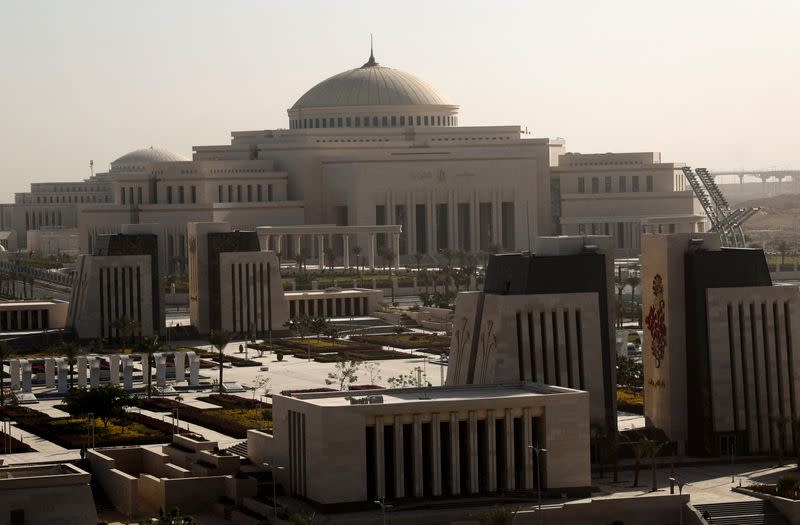Egypt set to change finance, foreign and supply ministers

CAIRO (Reuters) -Egypt is expected to change its foreign, finance, petroleum, electricity and supply ministers in a long-awaited cabinet overhaul, with Ahmed Kouchouk promoted to lead the finance ministry, state TV said on Tuesday.
Kouchouk was serving as a deputy to Mohamed Maait, who as finance minister since 2018 played a central role in Egypt's negotiations with the International Monetary Fund as well as efforts to manage an economic crisis that included soaring inflation and foreign exchange shortages.
At the foreign ministry, state TV citing local channel ExtraNews, reported that Egypt's ambassador to the European Union Badr Abdelatty would replace Sameh Shoukry.
Shoukry is seen as a diplomatic heavyweight who had held the foreign portfolio since 2014, handling a flurry of diplomatic activity linked to the conflict in Gaza, on Egypt's northeastern border.
Sherif Farouk, chairman of state postal company Egypt Post, was set to take over at the supply ministry, replacing veteran minister Ali Moselhy, the reports said.
The supply ministry oversees Egypt's trade in wheat and other commodities, as well as a sprawling subsidy system for which tens of millions of Egyptians are eligible.
Farouk has a background in finance and during his tenure at Egypt Post led a reform of the pension payments system, according to official statements and local media reports.
Egypt's government has recently signalled its intention to move fully away from subsidising goods to a cash subsidy system.
The electricity ministry is responsible for Egypt's power system, which since last year has been plagued by daily outages linked to shortages in gas supplies, managed by the petroleum ministry.
The new cabinet is expected to be sworn in on Wednesday, one month after the resignation of the previous cabinet was announced.
It will be headed by Prime Minister Mostafa Madbouly, who has been in the post since 2018. Ministers in Egypt have limited decision-making authority, with real power residing with the presidency, military and security services.
(Reporting by Nayera Abdallah, Nadine Awadalla, and Mohamed Ezz; writing by Aidan Lewis; Editing by Alexandra Hudson and Sharon Singleton)


